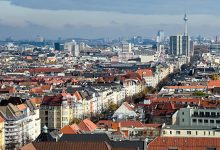The Muslim population in Russia represents a significant and diverse segment of the country’s demographic landscape. As of recent estimates, Muslims make up approximately 10% to 15% of Russia’s total population, translating to around 14 to 20 million individuals. This demographic is dispersed across the vast expanse of the Russian Federation, contributing to the nation’s rich cultural and religious tapestry.
Historical Context
Islam was introduced to the region that is now Russia in the 7th century through trade and military conquests. The spread of Islam was facilitated by the establishment of the Volga Bulgaria, an early Islamic state in the region, which played a crucial role in the dissemination of Islamic culture and practices. Over the centuries, the Islamic influence expanded with the incorporation of various territories into the Russian Empire. The most notable of these was the annexation of the Khanate of Kazan in 1552, which significantly increased the Muslim population within the empire’s borders.
During the Soviet era, the practice of Islam, like other religions, was heavily suppressed. The Soviet government promoted state atheism and implemented policies that restricted religious practices and institutions. Despite these restrictions, many Muslims maintained their faith covertly and continued to practice Islam in private.
Demographic Distribution
Today, the Muslim population in Russia is ethnically diverse, comprising various ethnic groups with different cultural and linguistic backgrounds. The largest Muslim communities are found in the North Caucasus, which includes regions such as Chechnya, Dagestan, and Ingushetia. These areas are home to numerous indigenous Muslim ethnic groups, each with its own unique traditions and practices.
In addition to the North Caucasus, significant Muslim populations can be found in the Volga region, particularly in Tatarstan and Bashkortostan. The Tatars and Bashkirs, who are predominantly Muslim, have a long history of Islamic practice and contribute to the cultural richness of these regions. Moscow and other major cities, such as Saint Petersburg, also host sizable Muslim communities due to migration and the presence of students and professionals from predominantly Muslim countries.
Religious Practices and Institutions
The Muslim community in Russia is characterized by a variety of religious practices, reflecting the diverse traditions and interpretations of Islam. Sunni Islam is the predominant branch, particularly among the ethnic groups of the North Caucasus and the Volga region. Shia Islam, although less common, is also practiced by certain communities, particularly among the Azerbaijani diaspora.
Religious institutions play a vital role in the lives of Russian Muslims. The Russian Muftis Council, established in 1999, serves as a central body representing Muslim organizations across the country and works to promote unity and address issues affecting the Muslim community. Local mosques and Islamic centers provide spaces for worship, religious education, and community activities. These institutions are crucial in maintaining religious practices, providing social support, and fostering interfaith dialogue.
Cultural and Social Contributions
Muslims in Russia have made significant contributions to the country’s cultural, scientific, and political spheres. Historically, Muslim scholars, poets, and artists have enriched Russian culture with their contributions. In modern times, prominent figures of Muslim heritage have made their mark in various fields, including literature, science, and sports.
For instance, renowned Tatar poet and writer Gabdulla Tukay is celebrated for his literary contributions in the early 20th century. In the realm of science, Salavat Yulaev, a Bashkir national hero, is remembered for his role in the Bashkir rebellion against the Russian Empire. Contemporary figures include renowned athletes such as Khabib Nurmagomedov, a mixed martial artist who has achieved international acclaim.
Challenges and Issues
Despite their significant contributions, Muslims in Russia face various challenges and issues. One of the primary concerns is the rise of Islamophobia and anti-Muslim sentiment, which has been exacerbated by geopolitical tensions and domestic political issues. Incidents of discrimination, social exclusion, and violence against Muslims have been reported, impacting their sense of security and integration into broader society.
Additionally, the Muslim community in Russia grapples with issues related to religious freedom and the preservation of cultural practices. The legacy of Soviet-era policies continues to influence the relationship between the state and religious institutions. Efforts to modernize and adapt religious practices to contemporary contexts can sometimes be met with resistance or misunderstanding.
Government Policies and Relations
The Russian government has adopted a range of policies to address the needs of its Muslim population and manage religious relations. The state has recognized Islam as one of the traditional religions of Russia, and efforts have been made to foster dialogue and cooperation between the government and Muslim organizations.
The Russian constitution guarantees freedom of religion, and the government has taken steps to support the construction of mosques and Islamic centers. However, there are ongoing debates and concerns about the extent of religious freedoms and the influence of the state on religious practices.
Conclusion
The Muslim population in Russia is a vibrant and integral part of the country’s demographic and cultural landscape. Their diverse backgrounds, rich traditions, and significant contributions highlight the importance of understanding and appreciating the role of Islam in Russian society. While challenges and issues persist, ongoing efforts to address these concerns and promote dialogue continue to shape the future of Muslim communities in Russia.




